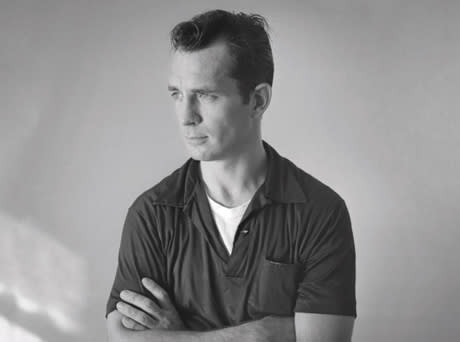Jack Kerouac, one of America's finest prose stylists, is too often dismissed as an author favoured exclusively by goopy young wanderlusters and shiftless Burning Man attendees. Academics have criticized his child-like wordplay and referred to his substantial literary output as an "unwieldy accretion." Representations on film also haven't done him any favours. In Cronenberg's Naked Lunch or Walter Salles' upcoming On the Road, you see a cliché not far removed from the '50s stereotype of a bereted beatnik snapping his fingers and saying, "Dig, man" or perhaps, "Daddy-o." But one film that remains the gold standard is Richard Lerner's 1986 biographical Rosetta stone, What Happened to Kerouac? It features in-depth interviews with friends, family and beat legends Herbert Huncke, Gregory Corso, Allen Ginsberg and William S. Burroughs, but what it does best is give Kerouac the stage. Kerouac's angelic readings play over images of "the great, raw bulge" of American bridges, barbershops, bus stops, highways and "old Frisco, with end of land sadness." His television appearances also bear much of the load, including a beautiful reading accompanied by Steve Allen's blues piano on The Steve Allen Show and his drunken buffoonery on Firing Line, with the incomparably high-toned William F. Buckley Jr. Then again, all that stuff is on YouTube for those curious. A weak point is the film's focus on the standard narrative: his friendship with Neal Cassady, his Benzedrine-fuelled composition of On the Road and his slow alcoholic death. This is a necessary introduction to Kerouac, but offers little devotees haven't heard a million times. The death of his saintly brother, Gerard, his athletic prowess, his alleged bi-sexuality and his many lesser known, but equally brilliant novels deserve recognition if we are to come to a thorough understanding of who Kerouac was. As a young man, this film was my introduction to Kerouac, and it precipitated an enthusiastic, kind-of-embarrassing, in retrospect, period of hero worship that lasted several years. Now it's being re-released to coincide with Salles' On the Road. If even one Kristen Stewart fan picks this up, and then reads not just On the Road, but smaller masterpieces like Maggie Cassidy, Big Sur or Tristessa, then an important purpose has been achieved: a literary icon's brilliant books have been helped to "burn, burn, burn like fabulous yellow roman candles exploding like spiders across the stars" for another generation or two. A whopping 139 minutes of extended interviews and footage from conferences come on a separate disc. This is the kitchen sink method: informative, but a bit of an unwieldy accretion in its own right.
(Shout! Factory)What Happened
Richard Lerner

BY Mike SauvePublished Nov 12, 2012